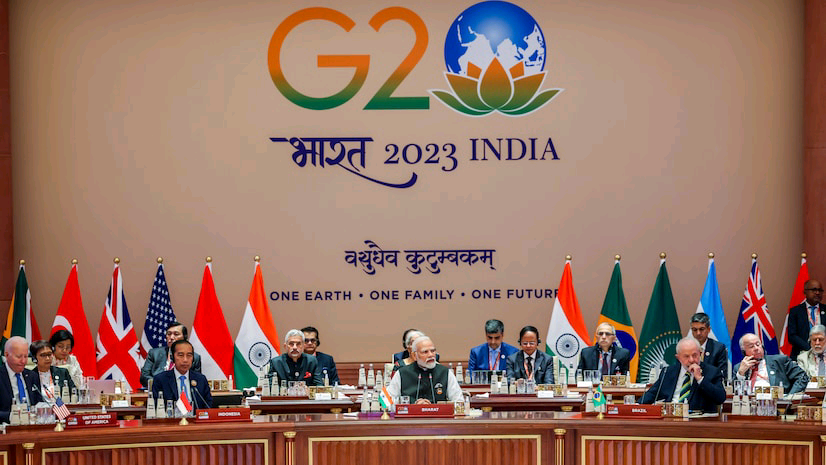The United States praised India’s hosting of the G20 summit, calling it a “success” and praising the historic “India-Middle East-Europe Economic Corridor,” which will facilitate greater trade and travel between Europe and Asia.
The two-day meeting of the G20 Leaders, hosted by India, concluded on Sunday. On the eve of the summit in New Delhi, the presidents of the United States, India, Saudi Arabia, the United Arab Emirates, France, Germany, Italy, and the European Union launched the ambitious India-Middle East-Europe Economic Corridor (IMEC).
As an alternative to China’s contentious Belt and Road Initiative (BRI), the new economic corridor is being looked at favourably.

A spokesperson for the United States Department of State, Matthew Miller, stated during a press briefing on Monday that “it was a landmark India-Middle East-Europe Economic Corridor (IMEC) that we believe will usher in a new era of connectivity from Europe to Asia that will stimulate economic growth, economic development across the two continents, as well as cooperation on energy and digital connectivity.”
In response to a question, he said that the United States, India, Saudi Arabia, the United Arab Emirates, the European Union, and other G20 partners have signed a memorandum of understanding to investigate the feasibility of a shipping and rail transportation corridor that would facilitate the free exchange of goods, services, energy, and data between India, the Middle East, and Europe.
Miller claimed that the G20 Summit in New Delhi, which just ended, was a huge success.
According to him, “we absolutely believe that it was a success.”
To begin, it’s true that the G20 is a sizable organisation. Both Russia and China are G20 participants. There is a wide variety of opinions represented in the group. Russia’s invasion of Ukraine is predicated on a violation of the principles of territorial integrity and sovereignty, so it is crucial that the organisation was able to issue a statement calling for respecting these principles.
Those are the questions at hand. That’s why we considered what they said to be a hugely significant statement on their part. New economic arrangements between Saudi Arabia and India, in which the United States participated, were also announced during the G20, Miller added.
If you want my opinion on whether or not (Chinese) President Xi Jinping should have attended, you’ll have to ask him. I can say that having President Biden and Secretary Blinken there, interacting face-to-face with their counterparts, was quite fruitful for us.
Nothing can replace that, and we found the dialogues to be extremely fruitful for the United States’ interests. Miller added that in addition to the sessions, the President had a number of pull-asides with leaders of other nations where we were aggressively promoting U.S. foreign policy interests, including engaging on the situation in Ukraine, as the White House made public over the weekend.
Emerging economies such as Brazil, South Africa, and Indonesia played a leading role in reaching the agreement on the declaration on the first day of the summit, which India led, resulting in an unexpected consensus among the G20 countries on the contentious Ukraine conflict.
About two-thirds of the world’s population and 85 percent of global GDP are located in the countries that make up the G20.
Argentina, Australia, Brazil, Canada, China, France, Germany, India, Indonesia, Italy, Japan, the Republic of Korea, Mexico, Russia, Saudi Arabia, South Africa, Turkey, the United Kingdom, the United States, and the European Union are all part of this grouping. The African Union was officially welcomed as a permanent member of the G20 on Saturday.
Support InfoStride News' Credible Journalism: Only credible journalism can guarantee a fair, accountable and transparent society, including democracy and government. It involves a lot of efforts and money. We need your support. Click here to Donate
